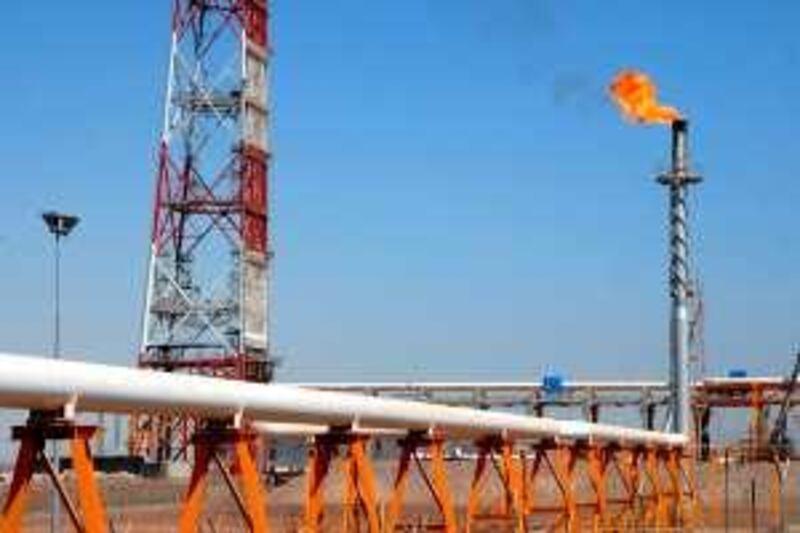Yemen, the poorest Arab nation, is preparing to inaugurate its first liquefied natural gas (LNG) plant and start exporting gas to South Korea - amid a worsening security situation. The long awaited development has been viewed by the country's government as a financial lifeline that could save the country from deepening sectarian conflict and imminent economic collapse. But analysts warn the revenue may be too little, too late.
The US$4.6 billion (Dh16.89bn) Yemen LNG project also faces enormous challenges in protecting its production plant, gas supply pipeline and the tankers leaving its dock from attack by militants and pirates. According to the Yemeni oil minister, Amir al Aydarus, the plant at Balhaf on the country's south coast is ready for its official inauguration on June 16. The operating company would start processing gas two days later and load its first cargo at the end of August, said Joel Fort, the general manager of Yemen LNG. The plant would reach full production four to six months after that, he added. In a statement, Mr al Aydarus said Yemen had taken delivery of two of four LNG tankers on order, with the other two expected in "coming days".
Despite a history of delays and cost overruns, the Yemen LNG project, led by the French energy group Total, promises to be one of the most cost-efficient operations of its type in the world, capable of rivalling those of Qatar, the world leader in LNG exports. That could help the project weather what promises to be a glutted LNG market in its first few years of operations. However, "market uncertainties could rapidly become a secondary concern, with politics and tribal unrest in the already deeply fragmented country edging closer to some kind of tipping point", Samuel Ciszuk, the Middle East energy analyst with the consulting firm IHS Global Insight, warned last month in a report.
The security risk to the country's energy installations has never been higher. According to analysts, Yemen LNG faces simultaneous threats on five fronts: pirates in the Gulf of Aden; al Qa'eda offshore and onshore; southern separatism; and tribal attacks on the pipeline supplying gas from fields in northern Yemen. Mr Fort has said Yemen LNG would employ only an unarmed security force to patrol its facilities, and that armed protection of LNG assets was the government's responsibility. Naval forces reportedly arrived in Balhaf a few weeks ago to begin familiarising themselves with the LNG plant and shipping lanes.
Another potentially destabilising factor for Yemen, analysts said, was that popular expectations of a revenue windfall from gas exports were running high and might be left largely unsatisfied. "This is likely to raise the levels of violence and blackmail against the government through kidnappings of foreigners and state officials, as well as the targeting of hydrocarbon or infrastructural installations, as Yemeni tribes revert to the tried and tested ways of pressing their government for money or investment in their region," predicted Mr Ciszuk.
As recently as last year, Ali Saleh, the country's president, was able to maintain a fragile peace through judicious patronage payments. But the already impoverished nation's economic circumstances have deteriorated in the past year, sapping the state's financial resources. Oil revenue, which typically provides two thirds of government income, fell 75 per cent in the first quarter to $365 million, from $1.46bn a year earlier, due to lower prices and falling output. Yemen pumped about 300,000 barrels per day (bpd) of crude last year, down from 410,000 bpd in 2004.
Adding the threat of famine to its problems, Yemen is also facing a severe drought this year. "That is an alert to the international community," Abdul al Iryani, an adviser to Mr Saleh and a former Yemeni prime minister, told Reuters on Sunday. "Poverty is a twin brother of terrorism in Yemen, where being a member of al Qa'eda is an attractive paying job." @Email:tcarlisle@thenational.ae





